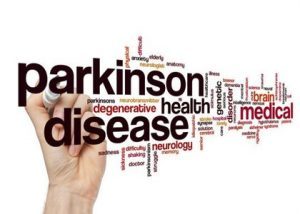- Home
- Editorial
- News
- Practice Guidelines
- Anesthesiology Guidelines
- Cancer Guidelines
- Cardiac Sciences Guidelines
- Critical Care Guidelines
- Dentistry Guidelines
- Dermatology Guidelines
- Diabetes and Endo Guidelines
- Diagnostics Guidelines
- ENT Guidelines
- Featured Practice Guidelines
- Gastroenterology Guidelines
- Geriatrics Guidelines
- Medicine Guidelines
- Nephrology Guidelines
- Neurosciences Guidelines
- Obs and Gynae Guidelines
- Ophthalmology Guidelines
- Orthopaedics Guidelines
- Paediatrics Guidelines
- Psychiatry Guidelines
- Pulmonology Guidelines
- Radiology Guidelines
- Surgery Guidelines
- Urology Guidelines
Singing may improve motor function in Parkinson’s disease

The study, presented at the Society for Neuroscience 2018 conference, found that singing improved respiratory and swallow control in people with PD. Results from the pilot study revealed improvements in mood and motor symptoms, as well as reduced physiological indicators of stress.
Singing may provide benefits beyond improving respiratory and swallow control in people with Parkinson's disease, according to new data from Iowa State University researchers.
Elizabeth Stegemöller, an assistant professor of kinesiology, cautions this is preliminary data but says the improvements among singing participants are similar to the benefits of taking medication.
Also Read: Diabetes drug improves depression in Parkinson’s disease
"We see the improvement every week when they leave singing group. It's almost like they have a little pep in their step. We know they're feeling better and their mood is elevated," Stegemöller said. "Some of the symptoms that are improving, such as finger tapping and the gait, don't always readily respond to medication, but with singing, they're improving."
Stegemöller, Elizabeth "Birdie" Shirtcliff, an associate professor in human development family studies; and Andrew Zaman, a graduate student in kinesiology, measured heart rate, blood pressure and cortisol levels for 17 participants in a therapeutic singing group. Participants also reported feelings of sadness, anxiety, happiness, and anger. Data were collected prior to and following a one-hour singing session.
This is one of the first studies to look at how singing affects heart rate, blood pressure, and cortisol in people with Parkinson's disease. All three levels were reduced, but Stegemöller says with the preliminary data the measures did not reach statistical significance. There were no significant differences in happiness or anger after class. However, participants were less anxious and sad.
Also Read: Appendix removal in early life reduces risk of Parkinson’s disease
Why does singing work?
The results are encouraging, but researchers still have a big question to tackle: what is the mechanism leading to these behavioral changes? They are now analyzing blood samples to measure levels of oxytocin (a hormone related to bonding), changes in inflammation (an indicator of the progression of the disease) and neuroplasticity (the ability of the brain to compensate for injury or disease) to determine if these factors can explain the benefits of singing.
"Part of the reason cortisol is going down could be because the singing participants feel positive and less stress in the act of singing with others in the group. This suggests we can look at the bonding hormone, oxytocin," Shirtcliff said. "We're also looking at heart rate and heart rate variability, which can tell us how calm and physiologically relaxed the individual is after singing."
The research builds upon the team's previous findings that singing is an effective treatment to improve respiratory control and the muscles used for swallowing in people with Parkinson's disease. The prevalence of Parkinson's disease is expected to double over the next 20 years. ISU researchers say therapeutic singing has the potential to provide an accessible and affordable treatment option to improve motor symptoms, stress, and quality of life for people with Parkinson's disease.

Disclaimer: This site is primarily intended for healthcare professionals. Any content/information on this website does not replace the advice of medical and/or health professionals and should not be construed as medical/diagnostic advice/endorsement or prescription. Use of this site is subject to our terms of use, privacy policy, advertisement policy. © 2020 Minerva Medical Treatment Pvt Ltd